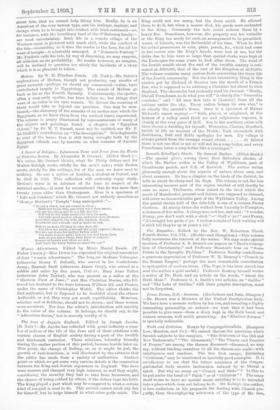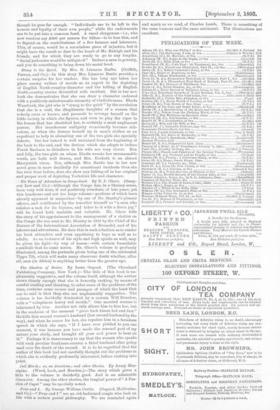Faith and Criticism. Essays by Congregationalists. (Sampson Low, Marston, and
Co.)—We cannot discuss the questions which furnish subjects to the essayists. "The Criticism of the Old and New Testaments," "The Atonement," "The Theory and Practice of Prayer," are among the themes discussed—discussed, we may say, without binding ourselves to all the statements made—with intelligence and candour. The two first essays, discussing "Criticism," may be mentioned as specially good examples. It is satisfactory to see that the future ministers of the Congre- gationalist body receive instruction infused by so liberal a spirit. But why an essay on" Church and State " ? Is this to be put under the head of " Faith " or of " Criticism " ? The essay itself seams to have no special merit entitling it to las intruded into a place which does not belong to it. Mr. Raleigh, the author, is less audacious in his proposals for dealing with Church pro- s erty, than thoroughgoing advocates of the type of Mr. Gee, though he goes far enough. "Individuals are to be left to the honour and loyalty of their own people," while the endowments are to be put into a common fund. A rural clergyman—i.e., who now receives say £400 per annum for tithes—is to lose this, and to depend on the contributions of a few farmers and labourers. This, of course, would be a scandalous piece of injustice, but it might have the result so dear to the heart of Mr. Raleigh and his friends, and for which they are ready to go to any lengths.
Social jealousies would be mitigated." Reduce a man to poverty, and you do something to bring down his social level.



































 Previous page
Previous page